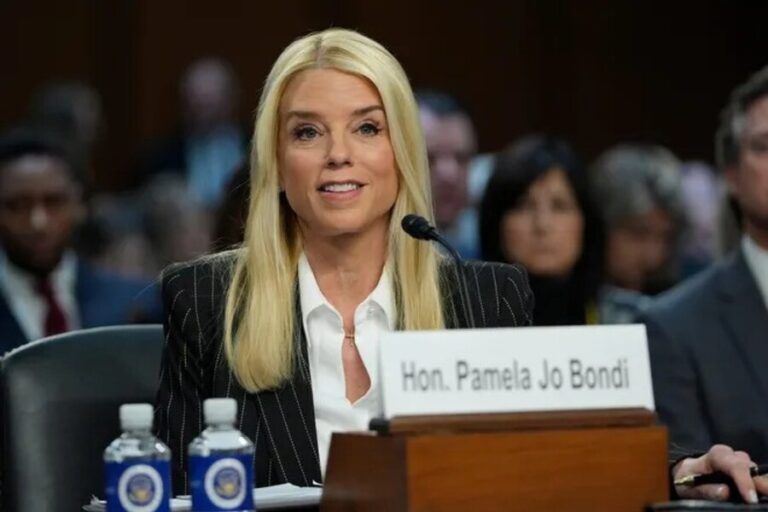President-elect Donald Trump’s Cabinet nominees faced intense questioning during Senate confirmation hearings on Wednesday, providing a preview of how his second administration might operate. The hearings revealed Trump’s focus on loyalty from his team and highlighted divisions between Republicans and Democrats over key issues like election integrity and the independence of federal agencies.
Among the nominees were Pam Bondi for attorney general, Marco Rubio for secretary of State, Pete Hegseth for Defense secretary, Russell Vought for Office of Management and Budget director, and John Ratcliffe for CIA director. While some nominees faced tough questions, others received bipartisan support.
Pam Bondi, a former Florida attorney general and close Trump ally, faced criticism from Democrats who questioned her ability to lead the Department of Justice independently. Bondi refused to directly say Trump lost the 2020 election, stating only that Joe Biden is “the president of the United States.” Her responses frustrated Democrats like Senator Mazie Hirono, who called it “disturbing” that Bondi couldn’t openly acknowledge the election outcome. Bondi defended her impartiality and pledged to restore fairness to the DOJ, insisting there would be no “enemies list” under her leadership.
Marco Rubio, on the other hand, had a much smoother hearing. Senators from both parties praised his qualifications for secretary of State. Democratic Senator Jeanne Shaheen called Rubio “well-qualified,” and Senator Cory Booker said he was happy to see Rubio in the role. Rubio’s hearing offered a rare moment of bipartisan agreement during an otherwise tense day.
The hearings also showed how Trump’s loyal base is influencing the confirmation process. Supporters of the MAGA movement launched campaigns to pressure Republican senators to back Trump’s picks. Pete Hegseth, nominated for Defense secretary, gained support from key senators like Joni Ernst, thanks to these efforts. Similarly, Bondi received strong backing from Republicans, who argued that her close relationship with Trump would help her effectively lead the DOJ.
Several nominees were questioned about their involvement with Project 2025, a conservative policy plan linked to Trump’s administration. Russell Vought, nominated for the Office of Management and Budget, defended his role in creating the plan but assured senators that final decisions would come from the president. Democrats raised concerns about the plan’s potential impact, citing proposals to centralize federal power and weaken regulations. These concerns were echoed during other hearings, including those for Transportation Secretary nominee Sean Duffy.
Trump’s choices for Cabinet positions this time around seem to reflect a shift from his first term, where he often clashed with top officials. The current nominees appear more closely aligned with Trump’s agenda, which Republican senators view as a positive. Senator Lindsey Graham praised Bondi’s loyalty to Trump, saying her relationship with the president was a strength.
While Republicans have largely rallied behind Trump’s nominees, Democrats remain focused on holding them accountable. Bondi faced sharp criticism over concerns that Trump might use the Justice Department to target political opponents, a claim she strongly denied. Democrats are also questioning whether Trump’s nominees will prioritize public service or loyalty to the president.
The hearings highlighted the challenges ahead as Trump prepares to begin his second term. With his nominees ready to push his vision for the country, these Senate hearings offer a glimpse into the political battles likely to come in Washington.
